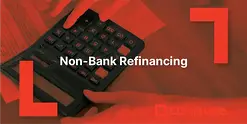Refinancing to Consolidate Debt: Is It Right for You?
 By
Trent Bradley
·
12 minute read
By
Trent Bradley
·
12 minute read

Debt consolidation through refinancing is one of the most common reasons New Zealand homeowners refinance their mortgages. If you're juggling multiple debts—credit cards, personal loans, car loans, or other obligations—consolidating them into your mortgage can dramatically reduce your interest costs and simplify your financial life. However, debt consolidation isn't a magic solution, and it's not right for everyone. Success requires understanding how consolidation works, honestly assessing whether it suits your situation, and committing to the financial discipline necessary to make it genuinely beneficial.
Table of Contents
- Understanding Debt Consolidation Through Refinancing
- Calculating Your Potential Savings
- The Advantages of Debt Consolidation
- The Risks and Downsides of Debt Consolidation
- Who Should Consider Debt Consolidation
- Strategies for Successful Debt Consolidation
- Alternative Debt Management Strategies
- Professional Guidance for Debt Consolidation Decisions
- Frequently Asked Questions
Key Takeaways
- Mortgage rates (5.5-6.5%) are dramatically lower than personal loans (8-15%) and credit cards (15-25%), making consolidation potentially save thousands annually—$20,000 credit card debt at 22% costs $4,400 yearly in interest versus $1,200 at 6% mortgage rates
- Consolidation typically improves monthly cash flow substantially—$45,000 in consumer debts requiring $1,100 monthly payments might only increase mortgage payments by $270, freeing up $830 monthly
- The most serious risk is the "rebound effect"—many people re-accumulate consumer debt after consolidating, ending up with both larger mortgages and new high-interest debts, worse off than before
- Converting unsecured debts (credit cards, personal loans) to secured mortgage debt puts your home at risk—defaulting on mortgage can force property sale whereas unsecured debt defaults can't immediately seize property
- Extending debt repayment over full mortgage terms dramatically increases total interest—$10,000 on a 5-year personal loan at 12% costs $3,300 interest versus $9,000 over 25 years at 6% despite lower rates
- Success requires closing credit accounts after consolidation, maintaining previous total payment amounts as extra mortgage repayments, creating strict budgets, and addressing underlying spending behaviors
- Calculate break-even point for refinancing costs—if costs are $4,000 and monthly savings are $830, you recover costs in 5 months, with everything after representing genuine benefit
This comprehensive guide explains how debt consolidation through refinancing works, helps you calculate potential savings and costs, explores the advantages and risks, identifies who should and shouldn't consolidate debt, and provides strategies for ensuring consolidation genuinely improves rather than worsens your financial position.
Understanding Debt Consolidation Through Refinancing
Before deciding whether to consolidate, it's essential to understand exactly what the process involves and how it affects your finances.
What is Debt Consolidation?
Debt consolidation means combining multiple separate debts into a single loan. When you consolidate through refinancing, you're increasing your mortgage to pay off other debts completely, then making just one monthly payment toward your consolidated mortgage instead of multiple payments to various creditors.
For example, if you have a mortgage of five hundred thousand dollars plus thirty thousand dollars across credit cards, personal loans, and car loans, you might refinance to a mortgage of five hundred and thirty thousand dollars, using the additional thirty thousand to pay off all other debts. You're left with only your mortgage to repay, albeit at a higher balance than before.
How the Process Works
The consolidation process begins with identifying all debts you want to consolidate and obtaining current balance statements. You then calculate how much additional equity you need to access through refinancing to pay off these debts completely.
When you apply to refinance, you inform your lender that you're consolidating debt and provide details of all debts being consolidated. They assess whether you can service the increased mortgage amount, considering that your consolidated debts will disappear from your credit obligations once paid off.
Upon approval and settlement, your lender advances the full refinanced amount. Your lawyer or you directly pay off all consolidated debts in full, ensuring they're completely discharged. You begin making payments on your new, larger mortgage, which now includes the consolidated debt amounts.
The Interest Rate Differential
The fundamental reason debt consolidation can save money is the substantial difference between mortgage interest rates and consumer debt rates. Mortgage rates in New Zealand currently sit around five and a half to six and a half percent. Personal loans typically charge eight to fifteen percent, while credit cards often charge fifteen to twenty-five percent or higher.
By converting high-interest debt to mortgage debt, you dramatically reduce the interest you're paying. Twenty thousand dollars in credit card debt at twenty-two percent costs you four thousand four hundred dollars annually in interest. That same twenty thousand in your mortgage at six percent costs just one thousand two hundred dollars annually—a saving of three thousand two hundred dollars per year.
These interest savings continue for as long as the debt remains, generating substantial cumulative benefits over time. However, this assumes you don't simply accumulate new high-interest debt after consolidating, which unfortunately many people do.
Calculating Your Potential Savings
Understanding exactly how much you'll save through consolidation helps you evaluate whether it's worthwhile after accounting for refinancing costs.
Gathering Current Debt Information
List every debt you're considering consolidating including the creditor name, current balance, interest rate, and current monthly payment. For revolving credit like credit cards, use the current balance even if you typically pay more than minimums.
For example, your debt summary might include a credit card with twelve thousand dollars at twenty-one percent paying three hundred dollars monthly, another credit card with eight thousand dollars at nineteen percent paying two hundred dollars monthly, a personal loan with fifteen thousand dollars at twelve percent paying three hundred and fifty dollars monthly, and a car loan with ten thousand dollars at nine percent paying two hundred and fifty dollars monthly, totaling forty-five thousand dollars across all debts with combined monthly payments of one thousand one hundred dollars.
Calculating Current Interest Costs
For each debt, calculate your annual interest cost by multiplying the balance by the interest rate. In our example, the first credit card costs two thousand five hundred and twenty dollars annually in interest, the second costs one thousand five hundred and twenty dollars, the personal loan costs one thousand eight hundred dollars, and the car loan costs nine hundred dollars, totaling six thousand seven hundred and forty dollars annually in interest charges across all debts.
This figure represents what you're currently paying just in interest, not including any principal reduction. It's a sobering number that highlights why consolidation can be so beneficial.
Calculating Consolidated Interest Costs
Determine what interest you'd pay if these debts were consolidated into your mortgage. If your mortgage rate is six percent, multiply your total debt amount by this rate. Forty-five thousand dollars at six percent equals two thousand seven hundred dollars annually.
Your annual interest saving is your current interest cost minus your consolidated interest cost—in this case, six thousand seven hundred and forty dollars minus two thousand seven hundred dollars equals four thousand and forty dollars saved annually. That's over three hundred dollars monthly that's no longer disappearing into interest charges.
Comparing Monthly Payments
Your current combined debt payments total one thousand one hundred dollars monthly. After consolidation, forty-five thousand dollars added to your mortgage over your remaining term might only increase your mortgage payment by approximately two hundred and seventy dollars monthly, depending on your remaining term and exact interest rate.
This means you free up approximately eight hundred and thirty dollars monthly in cash flow—a substantial improvement that can relieve financial pressure, fund emergency savings, or be redirected toward paying down your mortgage faster to minimize total interest paid.
Accounting for Refinancing Costs
Don't forget to factor in the costs of refinancing including application fees, legal fees, valuation costs, and any break fees if exiting a fixed term early. If your total refinancing costs are four thousand dollars, divide this by your monthly savings to calculate your break-even point.
Four thousand dollars divided by eight hundred and thirty dollars equals approximately five months. After five months, you've recovered your refinancing costs through improved cash flow, and everything after that represents genuine benefit.
Additionally, the annual interest savings of four thousand and forty dollars means you recover refinancing costs through reduced interest in less than one year, with savings continuing for the life of the debt.
The Advantages of Debt Consolidation
Understanding the benefits helps you appreciate why consolidation can be a powerful financial strategy when used appropriately.
Substantial Interest Savings
The most obvious and often most significant benefit is the dramatic reduction in interest costs. Converting high-interest debt to low-interest mortgage debt can save thousands annually, money that can be redirected toward building savings, investing, or paying down debt faster.
Over time, these savings compound substantially. Saving four thousand dollars annually over ten years means forty thousand dollars kept in your pocket rather than paid to lenders—a life-changing amount for many families.
Improved Monthly Cash Flow
Consolidation typically reduces your total monthly debt servicing significantly. While your mortgage payment increases, the reduction in payments to credit cards, personal loans, and other creditors usually far exceeds this increase.
This improved cash flow reduces financial stress and provides breathing room in your budget. You have more flexibility to handle unexpected expenses, save for goals, or simply live more comfortably without constantly juggling payments.
Simplified Financial Management
Instead of tracking multiple payment dates, amounts, and creditors, you have just one monthly mortgage payment. This simplification reduces administrative burden, eliminates the risk of missed payments across multiple accounts, and makes budgeting more straightforward.
For people who struggle with financial organization, this simplification alone can be transformative, reducing stress and improving financial management.
Improved Credit Score Potential
Paying off credit cards and personal loans in full through consolidation immediately reduces your credit utilization and removes multiple debts from your credit file. As long as you don't immediately accumulate new debts, your credit score often improves significantly over the following months.
Better credit scores open doors to more favorable terms on future borrowing and demonstrate financial responsibility. However, this benefit only materializes if you don't damage your credit by accumulating new debt after consolidating.
Protection of Assets
If you're struggling to meet payments on personal loans or other debts, consolidating them into your mortgage can protect you from potential asset seizure or legal action. While your mortgage becomes a secured debt against your home, you're less likely to face immediate collection action if you encounter temporary financial difficulties, provided you continue making mortgage payments.
This shouldn't be a primary reason for consolidating, but it's a genuine benefit for people experiencing financial stress from multiple creditors.
The Risks and Downsides of Debt Consolidation
Debt consolidation isn't without risks and disadvantages. Understanding these helps you make informed decisions and avoid common pitfalls.
Converting Unsecured Debt to Secured Debt
Credit cards and personal loans are typically unsecured debts—not backed by any specific asset. If you default, creditors can pursue legal action but can't immediately seize property. When you consolidate these debts into your mortgage, you're converting them to secured debt backed by your home.
If you default on your mortgage, your lender can ultimately force the sale of your home to recover their money. You're therefore putting your home at risk for debts that previously didn't threaten your housing security. This substantially increases the stakes if your financial situation deteriorates.
Extending Repayment Timeframes
Consumer debts typically have shorter repayment terms than mortgages. A personal loan might be structured to be repaid over five years, while a mortgage might have twenty-five years remaining. When you consolidate, you're stretching debt repayment over your full mortgage term.
While this reduces monthly payments, it dramatically increases the total interest paid over time. Ten thousand dollars on a five-year personal loan at twelve percent costs approximately three thousand three hundred dollars in interest. That same ten thousand consolidated into a twenty-five year mortgage at six percent costs approximately nine thousand dollars in interest—almost three times as much due to the extended timeframe.
To avoid this problem, maintain or increase your mortgage payments after consolidating, directing the savings toward accelerated principal reduction rather than simply reducing your total payments.
The Rebound Effect
Perhaps the most serious risk is accumulating new debt after consolidating. Many people consolidate their debts, experience temporary relief, then gradually accumulate new credit card balances and personal loans, leaving them with both a larger mortgage and new consumer debts—worse off than before consolidating.
Statistics suggest that a significant percentage of people who consolidate debt end up re-accumulating consumer debt within a few years. Unless you address the underlying spending behaviors and financial habits that created the debt initially, consolidation merely provides temporary relief before problems resurface worse than before.
Refinancing Costs
Consolidating debt through refinancing incurs substantial costs including application fees, legal fees, valuation costs, and potentially break fees. If you're consolidating relatively small debt amounts, these costs might eliminate much of your savings, particularly in the first year or two.
Always calculate whether the savings justify the costs over your realistic timeframe. If you're consolidating only five thousand dollars in debt but paying four thousand in refinancing costs, the benefit is marginal at best.
Reduced Equity Cushion
Accessing equity to consolidate debt reduces your equity buffer, leaving you with less financial security. If property values decline or you need to access equity for emergencies later, you have less available equity than before consolidating.
Consider whether reducing your equity cushion to eliminate consumer debt is prudent given your circumstances and risk tolerance.
Who Should Consider Debt Consolidation
Debt consolidation makes sense for certain people in specific circumstances but isn't appropriate for everyone.
Ideal Candidates for Consolidation
You're likely a good candidate for debt consolidation if you have substantial high-interest debt that's costing you thousands annually in interest charges, sufficient equity in your property to consolidate your debts while maintaining adequate LVR, and stable income that can comfortably service your increased mortgage payment.
Ideal candidates also have a clear plan and commitment to avoid accumulating new debt after consolidating, genuine desire to improve your financial position rather than just seeking payment relief, and realistic understanding that consolidation is a tool, not a solution to underlying financial problems.
If you check all these boxes and have honestly assessed your ability to maintain financial discipline after consolidating, you're likely to benefit substantially from consolidation.
Who Should Avoid Consolidation
Conversely, you should probably avoid debt consolidation if your debt accumulation stems from uncontrolled spending or lack of financial discipline without genuine commitment to change these behaviors. If you have insufficient equity to consolidate your debts while maintaining reasonable LVR, or if you can't comfortably afford the increased mortgage payment even with reduced total debt servicing, consolidation isn't appropriate.
Also avoid consolidation if you're considering using consolidation to fund continued overspending rather than to gain control of your finances, if you're planning to sell your property soon and might not benefit long enough to justify refinancing costs, or if you haven't addressed underlying income problems or have unstable employment that threatens your ability to meet even consolidated payments.
Honestly assess whether you fit the ideal candidate profile or whether consolidation might cause more problems than it solves in your situation.
Special Considerations
Some circumstances require extra consideration. If you're separating or divorcing and debt allocation is part of property settlement, consolidating personal debt into joint property complicates matters. If you've recently experienced financial hardship like job loss or illness that caused debt accumulation, ensure you've stabilized your situation before consolidating.
If you're young with a very long mortgage ahead, carefully consider whether extending consumer debt repayment over thirty years makes sense even with lower interest rates. And if you have any gambling, addiction, or compulsive spending issues, address these with professional help before considering consolidation, as these underlying problems will likely lead to re-accumulating debt regardless of consolidation.
Strategies for Successful Debt Consolidation
If you decide consolidation is right for you, these strategies maximize benefits and minimize risks.
Close Credit Accounts After Consolidation
Once you've paid off credit cards and revolving credit through consolidation, strongly consider closing these accounts or at least reducing credit limits dramatically. The temptation to use available credit is powerful, and maintaining high-limit credit accounts after consolidating is a common path to re-accumulating debt.
If you need one credit card for emergencies or convenience, maintain just one with a modest limit rather than multiple cards with high limits.
Maintain Your Previous Payment Amount
Instead of reducing your total monthly debt payments to just your new mortgage amount, continue paying what you were paying before consolidating. Apply the difference to your mortgage principal as extra repayments.
If you were paying one thousand one hundred dollars monthly toward debts before consolidating, and your new mortgage payment is only seven hundred dollars, continue paying the full one thousand one hundred with four hundred going to extra principal payments. This accelerates your mortgage reduction and ensures the consolidated debt gets repaid quickly rather than lingering for decades.
Create and Stick to a Budget
Debt consolidation provides a fresh start, but success requires ongoing financial discipline. Create a realistic monthly budget that accounts for all income and expenses, identify and address spending patterns that led to debt accumulation, and build emergency savings so you're not forced back into debt when unexpected expenses arise.
Consider using budgeting apps or tools that help you track spending and stay accountable to your financial goals.
Address Underlying Issues
If overspending, lack of financial knowledge, or other behavioral issues contributed to your debt, address these directly. Consider consulting with a financial mentor or counselor who can help you develop better money management skills and habits. Read books or take courses on personal finance and money management. Join support groups or online communities focused on debt reduction and financial improvement.
Consolidation treats symptoms but doesn't cure underlying financial behavior problems. Long-term success requires addressing root causes.
Set Clear Debt Elimination Goals
Rather than simply maintaining minimum payments on your consolidated mortgage, set specific goals for debt elimination. Calculate when you could be completely debt-free if you maintain extra payments, set milestone dates for eliminating specific amounts of consolidated debt, and celebrate progress as you hit these milestones.
Having clear goals and tracking progress keeps you motivated and accountable rather than settling into complacency after consolidation.
Monitor Your Credit and Resist New Debt Offers
After consolidation, your credit score often improves significantly as paid-off debts appear on your credit file. This improvement triggers increased offers for new credit cards, personal loans, and other borrowing.
Resist these temptations. Improved credit is an opportunity to maintain good financial health, not an invitation to accumulate new debt. Unsubscribe from marketing emails, decline pre-approved credit offers, and maintain discipline despite increased access to credit.
Alternative Debt Management Strategies
Before consolidating through refinancing, consider whether alternative approaches might better suit your situation.
Debt Snowball or Avalanche Methods
Instead of refinancing to consolidate, some people successfully eliminate debt through aggressive repayment strategies. The debt avalanche method focuses extra payments on your highest interest debt first while making minimums on others, then rolling payments to the next highest interest debt once the first is eliminated.
The debt snowball method focuses on paying off your smallest balance first regardless of interest rate, then rolling that payment to the next smallest debt. This provides psychological wins through quick eliminations that motivate continued effort.
These methods require no refinancing costs and maintain your home equity cushion, though they typically take longer than consolidation unless you can make very aggressive payments.
Negotiating with Creditors
Sometimes you can negotiate directly with creditors for reduced interest rates, hardship arrangements with reduced payments, or settlement for less than the full balance owed if you're genuinely in financial distress.
These negotiations can provide relief without increasing your mortgage, though they may affect your credit score and require significant time and emotional energy to pursue.
Balance Transfer Credit Cards
For credit card debt specifically, balance transfer offers with low or zero percent introductory rates can provide temporary relief while you aggressively pay down balances. If you can eliminate credit card debt within the promotional period, you save substantial interest without refinancing.
However, promotional rates are temporary, and if you don't eliminate the debt before rates revert to standard levels, you're back where you started or worse.
Credit Counseling and Debt Management Plans
Non-profit credit counseling services can help you develop debt management plans, potentially negotiate with creditors on your behalf, and provide financial education and accountability. These services typically charge modest fees much less than refinancing costs.
For people whose debt isn't large enough to justify refinancing costs or who need more structured support, credit counseling can be valuable.
Professional Guidance for Debt Consolidation Decisions
Given the complexity and long-term implications, professional advice helps ensure you make the right decision for your circumstances.
At Luminate Financial Group, we help New Zealand homeowners evaluate whether debt consolidation through refinancing makes sense by calculating your realistic savings after all costs, assessing whether you have sufficient equity and income to consolidate successfully, structuring refinancing to maximize benefits while minimizing risks, and providing honest feedback about whether consolidation suits your specific situation.
We also connect you with budgeting and financial counseling resources if we believe addressing underlying financial management issues is essential for long-term success.
Our goal isn't simply to process refinancing applications but to ensure debt consolidation genuinely improves your financial position rather than creating new problems. Sometimes that means recommending you delay consolidation, pursue alternative strategies, or address behavioral issues before using refinancing as a tool.
Considering debt consolidation through refinancing? Contact Luminate Financial Group for a comprehensive analysis. We'll calculate your potential savings, evaluate whether consolidation is right for you, and guide you toward the best strategy for your financial future.

Trent Bradley
Trent Bradley is a New Zealand financial advisor specializing in property-backed finance and investment consulting. With over 26 years of experience running his mortgage broking business, he has helped wholesale investors access high-yield property-backed loan opportunities. For the past 12 years, Trent has led Luminate Finance, a New Zealand finance company dedicated to connecting investors with secure property investment solutions.
































